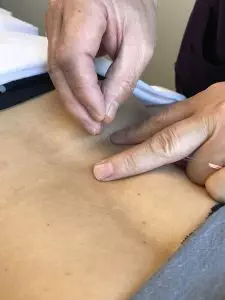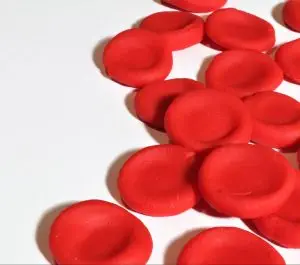-
 Art of Wellness Acupuncture & Traditional Chinese Medicine (TCM)11704 Wilshire Blvd, Suite 295, Los Angeles, CA, 90025
Art of Wellness Acupuncture & Traditional Chinese Medicine (TCM)11704 Wilshire Blvd, Suite 295, Los Angeles, CA, 90025
myartofwellness@gmail.com310-451-5522 Office Hours
MonClosedTue7:30 am --4 pmWed7:30 am --4 pmThu7:30 am -- 4 pmFri7:30 am -- 4 pmSat7:30 am -- 4 pmSunClosedOur office opens from Tuesdays to Saturdays 7:30 am to 4 pm, will be closed on Memorial day, Independent day, Labor day, Thanksgiving day, Christmas and New year.
-
Recent Posts
- How to Treat Rosacea With Acupuncture and TCM
- How to Treat Perioral Dermatitis With Acupuncture and TCM
- Lymphatic Drainage With Acupuncture and TCM
- How to Treat Turf Toe With Acupuncture
- How to Treat Nerve Pain With Acupuncture and TCM
- How to Treat Watery Eyes With Acupuncture and TCM
- How to Treat Ovarian Cysts With Acupuncture and TCM
- How to Treat Dystonia With Acupuncture and TCM
- Can Acupuncture Help Bad Breath?
- How to Treat Atopy with Acupuncture and TCM
- Plantar Fasciosis Treatment With Acupuncture and TCM
- How to Protect Yourself When Air Quality Is Poor
- How to Treat Spinal Headache With Acupuncture and TCM
- How to Treat Sarcoidosis With Acupuncture and TCM
- How to Treat Flu With Acupuncture and TCM
- Chinese New Year 2025 Year of the Snake
- Sign up to receive news and updates and get my free report:“The Top 10 Reasons to Try Acupuncture”

July 2025 M T W T F S S 1 2 3 4 5 6 7 8 9 10 11 12 13 14 15 16 17 18 19 20 21 22 23 24 25 26 27 28 29 30 31
Digestion
How to Treat Diarrhea With Acupuncture and TCM
By Qineng Tan, L.Ac., Ph.D. & Xiaomei Cai, L.Ac., Ph.D.

Chronic diarrhea, explosive diarrhea, diarrhea after eating? Diarrhea may be related to IBS (irritable bowel syndrome), or an IBD (inflammatory bowel disease), or a reaction to a food allergy, parasites, or stress. Acupuncture and TCM offer an alternative diarrhea treatment, so you can get relief from stomach pain and diarrhea.
Why Do I Have Diarrhea?
There can be many different causes of diarrhea, also known as loose stool. Acute diarrhea, which only lasts one or two days, will usually go away on its own.
Watery diarrhea that lasts a few days is usually due to food poisoning. Eating something that was rotten, or not cooked properly to destroy bacteria, can cause vomiting and diarrhea. Watery diarrhea can also happen when you have some type of viral infection, such as the “stomach flu.”
Chronic diarrhea, or persistent diarrhea, which lasts for weeks, or bouts of diarrhea that come and go frequently, may be related to IBS symptoms, IBD symptoms, Celiac disease, SIBO, or some other problem.
More than 6% of adults in the U.S. report having chronic diarrhea. Chronic diarrhea in children is also a serious health concern worldwide.
Top 10 Causes of Diarrhea
Diarrhea is a common condition that everyone experiences sometimes. Usually it is temporary, but it can become persistent and serious enough to require diarrhea treatment. The most common reasons a person experiences loose bowel movements include:
- Bacterial infection, traveler’s diarrhea, food poisoning, unsafe drinking water
- Viral infection, such as rotavirus, viral gastroenteritis, stomach flu
- Parasite infection, such as giardiasis
- Food allergy, food intolerance, food sensitivity, Celiac disease
- Reaction to medications like antibiotics, antidepressants, or Metformin
- Reaction to radiation therapy, cancer treatment
- IBS – diarrhea, constipation, and stomach cramps are common IBS symptoms
- IBD – colitis or Crohn’s disease, inflammatory autoimmune disorders that affect the gut
- Malabsorption of food, poor absorption of nutrients
- Menstrual cycle or Perimenopause – changes in hormones/estrogen can cause diarrhea
Certain foods can cause diarrhea, including: too much coffee, artificial sweeteners like mannitol and sorbitol, and red food coloring. Magnesium supplements can also cause loose stools.
If diarrhea lasts more than a few days, it is important to seek healthcare advice. Chronic diarrhea can lead to dehydration and fatigue, and may be happening because of some more serious condition that needs to be addressed.
What Causes Chronic Diarrhea?

Bouts of diarrhea that keep recurring can be a symptom of disorders such as:
- IBD (inflammatory bowel disease) – the most common IBDs are ulcerative colitis and Crohn’s disease. IBD symptoms usually include bloody diarrhea and abdominal pain. IBDs can cause chronic or recurring diarrhea, which can lead to dehydration, fatigue, and weight loss. IBDs can be mild, or so serious that they cause long-lasting damage to the gastrointestinal tract.
- Ulcerative colitis – an autoimmune disorder that causes inflammation and ulcers, or open sores, in the lower gastrointestinal system, including the colon and rectum.
- Crohn’s disease – an autoimmune disorder that causes inflammation mainly in the small intestine, but can affect any part of the GI tract.
- IBS – Irritable bowel syndrome can seem similar to IBDs, also causing recurring bouts of diarrhea and stomach pain. However, IBS is considered a functional gastrointestinal disorder. It is quite common. People with IBS symptoms may have alternating bouts of diarrhea and constipation. People who tend to have more diarrhea-dominant IBS have “IBS-D.”
- Celiac disease – an autoimmune disorder in which a reaction to eating wheat gluten causes serious inflammation of the GI system, leading to abdominal pain, bloated stomach, diarrhea, malnutrition, fatigue, and skin rashes.
With these conditions, diarrhea is brought on periodically—sometimes alternating with constipation, as in some cases of IBS—by factors having to do with the diet or stress, or with autoimmune processes.
Some surgeries that affect the gastrointestinal organs—like gastric bypass, gastric sleeve, or gallbladder removal—can cause chronic diarrhea.
Chronic diarrhea can be caused by an inability of the intestinal walls to absorb nutrients, and/or of the walls of the colon to absorb liquid. It may also be due to excessive action of the intestine in terms of peristalsis, the squeezing of the intestine to move matter through.
Diarrhea Treatment
Acute diarrhea usually goes away on its own in a day or two. Often, people will use OTC remedies for diarrhea and stomach pain, such as Immodium or Pepto-Bismol.
If you have been experiencing persistent diarrhea and seek medical advice, a doctor will perform tests to figure out what is causing the diarrhea, and will offer electrolyte fluids to help with dehydration. Blood tests or a stool test will show if the diarrhea is due to a bacterial infection or parasitic infection.
If chronic diarrhea is determined to be related to a medication you are already taking, then that may need to be adjusted.
Discovery of IBS or an IBD usually involves more diagnostic testing, including a colonoscopy and/or endoscopy, to see if there is inflammation or blockage in the GI tract.
Medical treatment for IBS may involve being offered antispasmodic medications that relax the intestinal walls and slow down the movement of the bowels and can help relieve stomach cramps and abdominal cramping. Dietary changes and behavioral therapy may be recommended.
Pharmacological treatment for IBDs like colitis and Crohn’s usually involves taking a combination of anti-inflammatories and immunosuppressants, to reduce inflammation in the gut and to block the inappropriate autoimmune responses that are triggering the inflammation. Unfortunately, steroids and medications like Xeljanz can cause other side effects and health problems.
Medical treatment for chronic diarrhea may help relieve symptoms and reduce the frequency of bouts of diarrhea, but it does not necessarily address the underlying causes of diarrhea.
Acupuncture and TCM offer an effective alternative treatment for diarrhea that is more suited to each patient’s individual situation.
Can Acupuncture Help Diarrhea?

Chronic diarrhea, according to TCM theory, is usually considered to be related to the health of the spleen. In TCM, the organ systems all interact harmoniously, unless there is imbalance. The imbalance of one organ system may throw off other systems, leading to various symptoms.
In TCM, the spleen is responsible for breaking down the nutrients from food and converting them into energy. If the spleen is not functioning properly, watery stool is often the result. Diarrhea, stomach pain, and other symptoms may differ from person to person, depending on how the spleen is interacting with the liver, stomach, or kidneys.
Common Chinese Medicine diagnosis patterns for chronic diarrhea include:
- Spleen Deficiency with Liver Qi stagnation: mucus in the stool, abdominal pain, cramping, gassiness, bloated stomach, irritability, and feelings of depression
- Spleen Deficiency with Stomach deficiency: watery stools, poor appetite, feeling full quickly, stomach distended after eating, pallor, and fatigue
- Spleen Deficiency with Kidney Deficiency: diarrhea in the morning, partially digested food in the stool, abdominal pain, lower back pain, knee pain, feeling cold
Acupuncture treatment for diarrhea, which may include moxibustion and herbs, aims to support the health of the spleen and other organs. Acupuncture has been shown to help relieve diarrhea and constipation related to IBS. Acupuncture treatment can also help with reducing stress and anxiety, which are common triggers for IBS symptoms.
Acupuncture can also help with diarrhea due to IBDs like ulcerative colitis and Crohn’s disease by reducing inflammation and helping to balance immune responses. TCM treatment for Crohn’s disease or colitis, incorporating nutrition and herbal supplements, can help improve the gut biome and strengthen the lining of the intestinal walls.
Acupuncture for Diarrhea Near Me, Los Angeles, West L.A., and Santa Monica
TCM treatment with an experienced acupuncturist near me can be very beneficial for anyone dealing with ongoing gastrointestinal distress. Both adults and children can find relief from diarrhea, constipation, stomach cramps, bloating, and abdominal pain related to conditions like IBS, IBDs, or celiac disease through acupuncture and herbs. At Art of Wellness, we have over 30 years of experience helping people with gastric disorders of all kinds.
*This article is for education from the perspective of Traditional Chinese Medicine only. The education provided by this article is not approved by FDA to diagnose, prevent, treat and cure human diseases. It should not stop you from consulting with your physician for your medical conditions. Traditional Chinese Medicine is based on Qi, which is an invisible force that usually cannot be observed by modern science. Because science focuses on testing ideas about the natural world with evidence obtained through observation, these aspects of acupuncture can’t be studied by science. Therefore acupuncture and Chinese herbs are often not supported by double-blind, randomized trials, and they are considered alternative medicine therapies in the United States.
How to Treat Constipation With Acupuncture and TCM
By Xiaomei Cai, L.Ac., Ph.D. & Qineng Tan, L.Ac., Ph.D.

Using a laxative or stool softener so that you can have a bowel movement? Everyone experiences constipation once in a while, but chronic constipation can be a serious issue. Acupuncture and TCM offer a natural way to get constipation relief.
Having difficulty going to the bathroom (pooping) is unfortunately a very common problem. Millions of people see their doctor seeking constipation treatment every year. People of all ages—children, adults, and older people—can suffer from slow digestion and hard bowel movements.
Symptoms of constipation can include:
- Dry, hard stool
- Having less than three bowel movements per week
- Bowel movements are difficult and/or painful
- Bloated stomach
- Abdominal cramps
- Nausea
Basically, constipation occurs when the muscles of the large intestine are not properly moving matter through and out of the colon. Slow movement can result in too much water being absorbed by the colon, causing hard, dry stools.
In general, “normal” bowel movements should be soft and easy to pass, and should happen daily. However, it is not at all uncommon for people to have painful constipation and only go a few times a week, or have even less frequent bowel movements (severe constipation).
There can be many different reasons why there is an imbalance of water in the colon, or that the muscles aren’t functioning well enough. These deeper causes need to be addressed if chronic constipation is becoming an issue.
Fortunately, TCM treatment for constipation includes traditional herb formulations that have been used for centuries as a natural laxative, and acupuncture, which can help strengthen the muscle action of the intestines.
Constipation Causes

Constipation can occasionally occur due to short-term circumstances. Many people experience temporary constipation while they are on a trip and using unfamiliar bathrooms. Eating foods that are unusual for you or low in fiber, becoming dehydrated, not getting any physical activity for several days—these situations could all cause sluggish elimination.
IBS (irritable bowel syndrome), which is considered a functional gastrointestinal disorder, often involves periodic constipation (or diarrhea).
Chronic constipation or severe constipation can have many causes. Sometimes constipation can be caused by a bowel obstruction, or something physically blocking the intestine.
Constipation can also be a secondary condition related to another chronic health problem.
Conditions that cause damage to nerves may disrupt the signals that tell the muscles of the colon to move. These could include:
- Diabetes
- Multiple sclerosis
- Parkinson’s disease
- Stroke
- Injury to the spinal cord
Hormonal imbalances or fluctuations can also lead to constipation. Hormone-related conditions that could contribute to constipation include:
- Diabetes
- Pregnancy
- Menstrual cycle, PMS, Period
- Hypothyroidism
- Hyperparathyroidism
Some medications can cause constipation, such as:
- Narcotics, opioid pain medications (such as Vicodin)
- NSAIDs, like ibuprofen
- Some antidepressants (like Zoloft)
- Blood pressure medications
- Sedatives
- Iron supplements
- Antacids like Maalox or Mylanta
- Diuretics
- Medications for overactive bladder, like Ditropan and Detrol
- Parkinson’s medications, like Sinemet
- Nausea medications
Using laxatives and other over-the-counter constipation remedies as a habit can, unfortunately, perpetuate the cycle and lead to ongoing, chronic constipation.
Mental health conditions like depression and anxiety can also affect regularity. TCM and acupuncture can help improve mental health as well as physical health to help bring constipation relief.
Constipation Side Effects
It is very important to find the root cause of constipation and find a solution. Chronic constipation can lead to other serious complications, such as:
- Hemorrhoids
- Anal fissures
- Diverticulitis
- Fecal impaction
- Stress urinary incontinence
Fortunately, acupuncture and TCM offer natural remedies for constipation without habit-forming medications.
Can Acupuncture Help Relieve Constipation?

In TCM, we diagnose a condition based on the pattern of symptoms each individual person is experiencing, as sometimes the same condition—in this case, constipation—can actually be influenced by many different variables. The diagnostic pattern gives us information about what acupuncture points and herbs will help treat that individual case.
According to TCM theory, constipation can present as:
- Yin Deficiency
- Excess Heat
- Qi Deficiency
In older people, chronic constipation is often related to weakness in the kidneys and liver, which leads to malnourishment and stagnant Qi.
In general, TCM constipation treatment will focus on helping to bring more moisture into the colon and clear heat, while activating the Qi (energy) of the bowel and removing physical and energetic blockages.
Many people who suffer from constipation don’t have enough microbiota or “good bacteria” in their colon. Acupuncture and herbs can help to improve the gut biome.
One study showed that electro-acupuncture helped a significant number of people with chronic constipation have more frequent bowel movements.
One study conducted in China found that, after 20 sessions, gastrointestinal patients who received acupuncture for constipation had a success rate of over 82%, meaning they had more frequent and easier bowel movements.
Another study showed that patients who went through a series of acupuncture treatments sustained longer-lasting efficacy from their treatment than patients who had used medicinal laxatives.
One commonly used Chinese formulation for constipation has been shown to help increase levels of oleamide, which is associated with intestinal motility.
Acupuncture Near Me for Constipation in Los Angeles and Santa Monica
At Art of Wellness, we often treat patients for constipation, whether that is their primary complaint, or sometimes a secondary issue to their other concerns. Acupuncture and Chinese herbs are excellent modalities for helping people achieve regularity and better overall digestion.
*This article is for education from the perspective of Traditional Chinese Medicine only. The education provided by this article is not approved by FDA to diagnose, prevent, treat and cure human diseases. It should not stop you from consulting with your physician for your medical conditions. Traditional Chinese Medicine is based on Qi, which is an invisible force that usually cannot be observed by modern science. Because science focuses on testing ideas about the natural world with evidence obtained through observation, these aspects of acupuncture can’t be studied by science. Therefore acupuncture and Chinese herbs are often not supported by double-blind, randomized trials, and they are considered alternative medicine therapies in the United States.
How to Treat Colitis With Acupuncture and TCM
By Xiaomei Cai, L.Ac., Ph.D. & Qineng Tan, L.Ac., Ph.D.

Diarrhea, bloody stool, fatigue, fever? These could be colitis symptoms. Ulcerative colitis is an inflammatory bowel disease (IBD) that causes swelling in the large intestine, abdominal pain, bloating and bloody diarrhea. Acupuncture and TCM can offer an alternative colitis treatment to help relieve ulcerative colitis symptoms.
Colitis is a gastrointestinal disease in which the colon—also known as the bowel, or the large intestine—becomes inflamed and can develop open sores, or ulcers.
Ulcerative colitis is the term for colitis that is caused by an autoimmune disorder. The immune system launches an attack on the tissues of the intestinal lining, causing inflammation and sores. It is similar to Crohn’s disease: an autoimmune disease that can affect any part of the digestive tract.
What causes colitis? There are several problems that can lead to abdominal pain and diarrhea, and sometimes it can be difficult to discover what is causing a person to have colitis symptoms.
Parasites, bacterial infections, or food poisoning can cause pain, inflammation in the colon, and diarrhea. For example, e coli bacteria, sometimes found in improperly cooked beef, can cause colitis symptoms. This is known as e colitis, or hemorrhagic colitis.
IBS (irritable bowel syndrome) symptoms can seem similar to those of colitis. People who suffer from IBS can have abdominal pain and diarrhea, urgency and mucus in their stool. However, IBS is considered a functional gastrointestinal disorder, not a disease. IBS does not cause permanent damage to the intestinal lining, while colitis can.
Ischemic colitis is a specific type of colitis caused by a blockage of blood flow to the intestine. This is more common in older adults, and can be the result of a blood clot in an artery, or low blood pressure due to heart failure or recovery from some major surgery. Some conditions, like lupus or sickle cell anemia, can restrict blood flow to the gastrointestinal tract. It could also happen due to a bowel obstruction caused by a tumor or hernia. Some medications can also restrict blood flow to the intestine.
TCM and acupuncture treatment, whether alone or as an adjunct to conventional treatment, can help relieve the symptoms of colitis by reducing inflammation in the intestine, helping to stop bleeding and helping to restore normal bowel movements.
Colitis Symptoms

Ulcerative colitis symptoms can be mild at first and become more persistent and/or severe over time. Some common symptoms of colitis, or IBD symptoms, include:
- Loose stool, loose bowel movements, diarrhea
- Urgency to go to the bathroom, feeling like you have to poop all the time
- Feeling like you have to poop, but not being able to
- Bloody stool, bloody poop
- Mucus in stool
- Abdominal pain
- Abdominal cramps, cramping
- Rectal pain
- Fatigue, feeling tired all the time, no energy
- Fever
- Weight loss
Symptoms of ulcerative colitis can come and go, or “flare up” at times. When symptoms abate, this is called “remission.”
Children can have colitis, which may cause them to not grow properly.
Colitis Treatment
Testing for IBDs might start with some basic blood tests and a stool sample test to see if there are any bacterial or parasitic causes of diarrhea. If inflammation needs to be looked at more closely to discover its location and cause, a colonoscopy or sigmoidoscopy may be done. Imaging—X-ray, ultrasound, or MRI—may be used to show if there is some kind of obstruction of the intestine.
If testing and treatment have ruled out IBD and other potential causes, a tissue biopsy may be used to diagnose ulcerative colitis, the autoimmune form of colitis.
Generally, once colitis or inflammatory bowel disease has been diagnosed, the main goal is to reduce inflammation in the colon. Anti-inflammatory drugs will usually be prescribed. Anti-diarrheal medications and pain relievers provide some symptomatic relief.
Ulcerative colitis is usually treated with a combination of anti-inflammatories and immunosuppressants. Unfortunately, these types of medications can have significant side effects. Long term use of corticosteroids can cause bone loss and swelling, while immunosuppressants can stress the liver and pancreas.
Newer pharmacological treatments include “small molecules,” like Xeljanz, which act as anti-inflammatories and immunosuppressants. However, these drugs have been flagged for potentially causing heart problems, and maybe even cancer.
When medications and dietary changes don’t help enough, surgery to remove part of the large intestine may be sought.
Acupuncture and TCM offer an alternative treatment for colitis, which may help relieve symptoms without side effects.
Can Acupuncture Help Colitis?

TCM herbs and acupuncture treatment are excellent modalities for helping to reduce inflammation. In the case of colitis and ulcerative colitis, the central problem is that the body is producing an inflammatory response in the large intestine that leads to pain and dysfunction. According to TCM theory, imbalances in the internal organs can cause heat, dampness, or blood stasis. In different people, the ways that colitis shows up may vary, depending on the pathogenic forces at work.
Acupuncture points to help relieve diarrhea, bloating, and bleeding in the colon will be combined with beneficial herbs to help clear heat and dampness. One study done in China showed that patients with ulcerative colitis who received acupuncture and herbal supplements in addition to conventional pharmaceutical treatments healed more quickly than those who did not receive TCM. They also reported feeling less anxiety and depression.
A systematic review of studies done regarding TCM for colitis concluded that acupuncture and herbs were effective compared to medical treatments.
Studies have shown that acupuncture can help balance the gut biome and help strengthen the intestinal walls.
Acupuncture has been shown to help people whose colitis is in remission to maintain better function.
TCM herbs, used in combination with conventional treatment, may help improve the healing of the mucosal lining of the intestine. One study showed that herbs helped stop bleeding from the colon in patients with ulcerative colitis.
Moxibustion has also been shown to help as a treatment for IBD, helping to relieve diarrhea, nausea, and abdominal cramping.
Acupuncture is believed, in part, to help regulate inflammatory bowel diseases by providing positive stimulation of the vagus nerve, which plays an important role in inflammatory responses.
Acupuncture Near Me for Ulcerative Colitis in Los Angeles and Santa Monica
Acupuncture can be an excellent adjunct to standard treatment for gastrointestinal disorders of all kinds, including: IBS, Crohn’s disease, Celiac disease, and Candida. At Art of Wellness, we have over 30 years of experience helping people with IBD and colitis to improve their quality of life.
*This article is for education from the perspective of Traditional Chinese Medicine only. The education provided by this article is not approved by FDA to diagnose, prevent, treat and cure human diseases. It should not stop you from consulting with your physician for your medical conditions. Traditional Chinese Medicine is based on Qi, which is an invisible force that usually cannot be observed by modern science. Because science focuses on testing ideas about the natural world with evidence obtained through observation, these aspects of acupuncture can’t be studied by science. Therefore acupuncture and Chinese herbs are often not supported by double-blind, randomized trials, and they are considered alternative medicine therapies in the United States.
How to Treat Anemia With Acupuncture and TCM
By Qineng Tan, L.Ac., Ph.D & Xiaomei Cai, L.Ac., Ph.D

Tired, weak, and pale? These can be symptoms of Anemia. Whether anemia is due to deficiency of iron, or inherited, as with sickle cell anemia or thalassemia, TCM and acupuncture can provide an alternative or adjunct anemia treatment.
Anemia (sometimes spelled ‘anaemia’) is a broad term referring to blood disorders that cause people to either not have enough red blood cells, or to have red blood cells that don’t function properly. Red blood cells are made by the bone marrow, using iron, folic acid, and vitamin B12 as building blocks.
Red blood cells carry hemoglobin to organs and tissues throughout the body. Hemoglobin is a protein that contains iron. Hemoglobin picks up oxygen from the lungs and carries it to the rest of the body. If this process is disrupted, then cells in the body don’t get the oxygen they need.
Top 5 Types of Anemia

There are many different types of anemia. Some are genetically inherited. Others may manifest due to conditions like pregnancy, an injury, an illness like mononucleosis, or nutritional deficiencies. Some types of anemia are related to autoimmune disorders, such as lupus, Crohn’s, or Celiac disease. Anemia can also be caused by blood loss due to an accident or surgery, or internal bleeding. The most common types of anemia include:
- Sickle cell anemia
- Pernicious anemia
- Iron deficiency anemia
- Thalassemia
- Aplastic anemia
Sickle cell disease is an inherited condition in which some red blood cells form in an unusual shape, like a sickle or crescent. These cells have a harder time moving through the blood vessels, so blood flow can become slow or blocked.
Thalassemia is also inherited. With this condition, the body does not make enough hemoglobin.
Iron deficiency anemia occurs when a person doesn’t have enough iron to nourish their red blood cells, so they have low hemoglobin levels. This type of anemia can happen due to a loss of blood, or because a person’s digestive system isn’t absorbing enough iron from their food. Sometimes people develop this type of anemia during pregnancy, because a lot of iron is going to the growing fetus.
Low levels of Vitamin B12 and/or folate can also cause anemia. Pernicious anemia is a type of autoimmune disorder in which the digestive tract cannot properly absorb vitamin B-12 because immune cells are attacking the lining of the stomach. Megaloblastic anemia is another kind of anemia, where the red blood cells are too large, that happens due to a B12 deficiency, or lack of folate.
People can also develop a form of pernicious anemia after having a gastric bypass or other surgery in which a part of the stomach or small intestine is removed. This inhibits their ability to absorb nutrients during digestion.
Aplastic anemia occurs when the bone marrow cannot produce enough blood cells. Aplastic anemia is rare, but it may happen when a person has gone through chemotherapy or radiation treatment, had a reaction to some toxin or medication, or after a viral infection.
Aplastic anemia can also manifest as an autoimmune disorder, in which the immune system attacks the bone tissue. Fanconi anemia is a genetic condition that also affects the bone marrow’s ability to make red blood cells.
Top 10 Anemia Symptoms
What are the signs that you are anemic? Pallor, or pale skin, weakness and fatigue, dizziness, and headaches are some of the most well-known iron deficiency symptoms.
Other signs of anemia include:
- Fatigue, feeling tired all the time
- Muscle weakness
- Markedly pale skin, pallor, or yellow skin
- Shortness of breath, rapid breathing
- Changes in stool
- Dizziness, light-headed
- Palpitations, rapid heart rate
- Low blood pressure
- Feelings of irritability, anger, frustration, depression, anxiety
- Headaches

Other signs of low iron can include:
- bruising easily
- pounding or “whooshing” in the ears
- cravings for ice or clay
- brittle nails
- hair loss
- sore tongue
- enlarged spleen
If anemia worsens, low iron symptoms or low hemoglobin symptoms could include:
- fainting, passing out
- whites of the eyes look blue
- chest pain
Treatment for Anemia
Doctors will usually order a CBC test first to check for anemia. This can reveal how many red blood cells you have, and the shape of the cells. Tests can also show B12 and iron levels.
Iron supplements and high iron foods will be recommended. In more severe cases, iron may be supplied intravenously, or with a blood transfusion. Vitamin B12 shots or supplementation of folic acid and Vitamin C may also be recommended.
Genetic types of anemia like sickle cell disease and thalassemia may be treated with a bone marrow transplant.
Autoimmune related anemia, like aplastic anemia, is usually treated with blood transfusions, immunosuppressant medications and steroids, and ultimately, bone marrow transplant, or stem cell transplant.
Anemia is, for the most part, considered a chronic illness that can be managed with additional iron and other nutrients. TCM allows us to look more deeply at the root causes of anemia, and to help increase iron absorption by addressing deficiencies affecting the digestive tract.
Can Acupuncture Help Anemia?
In TCM, we see many conditions as occurring due to a deficiency of Qi (vital energy) and/or blood. Blood deficiency can be the result of excessive blood loss, as after an injury, or due to heavy menstrual bleeding, as when a person has uterine fibroids. It can also happen because the organ systems are not able to perform their roles in the production of blood. Blood stasis, which occurs when blood is not being moved or replaced properly, can also be a factor.
In TCM theory, blood is considered to be governed by the heart, stored in the liver, and produced by the spleen. TCM differentiates different patterns of blood deficiency according to which organ systems seem to be affected:
- Heart blood deficiency: restlessness, difficulty concentrating, memory problems, heart palpitations
- Spleen blood deficiency: weight loss, lack of appetite, mental fatigue
- Liver blood deficiency: irritability, dry, brittle nails, spasms
Acupuncture treatment for anemia may involve, then, using specific acupoints to help strengthen the Qi of the liver, stomach, and/or spleen.
The root cause of anemia is that the digestive tract is not able to absorb nutrients adequately. Acupuncture has been shown in studies to help increase iron absorption in the intestinal tract. In laboratory studies, acupuncture treatment was seen to increase levels of serum ferritin, a protein that carries iron in the blood.
Chinese herbal supplements for anemia can help to remove blood stasis, strengthen the spleen and heart, and provide nourishment for the production of blood cells.
One study showed that TCM herbs helped reduce mortality risk when used as an adjunct or alternative to medical therapies in patients with aplastic anemia.
Acupuncture Near Me for Anemia in Los Angeles and Santa Monica
Anemia can have an impact not only on your energy and physical well-being, but your mental health, as well. TCM treatment for anemia involves a combination of acupuncture, herbs, and nutrition that can help strengthen the process of blood production and transportation throughout the body, while also helping to relieve symptoms like dizziness, fatigue, headaches, and irregular heartbeat. The acupuncturists at Art of Wellness have over 30 years of experience helping patients overcome chronic conditions like anemia.
*This article is for education from the perspective of Traditional Chinese Medicine only. The education provided by this article is not approved by FDA to diagnose, prevent, treat and cure human diseases. It should not stop you from consulting with your physician for your medical conditions. Traditional Chinese Medicine is based on Qi, which is an invisible force that usually cannot be observed by modern science. Because science focuses on testing ideas about the natural world with evidence obtained through observation, these aspects of acupuncture can’t be studied by science. Therefore acupuncture and Chinese herbs are often not supported by double-blind, randomized trials, and they are considered alternative medicine therapies in the United States.
How to Treat Colic and Infant Reflux With Acupuncture and TCM
By Xiaomei Cai, L.Ac., Ph.D. & Qineng Tan, L.Ac., Ph.D.

Colic and infant reflux are conditions that can cause excessive crying in babies and a lot of worry for new parents. Newborn reflux is when a baby spits up a lot, which is sometimes treated as GERD in infants. Infant reflux, also called baby reflux, and colicky pain can both be soothed with acupuncture and TCM treatment for babies.
Colic or Baby Reflux Can Be Treated With Chinese Medicine and Acupuncture
What is colic? Infantile colic is a well-known yet little understood syndrome, with crying being the primary symptom. Signs of colic include fussiness and crying inconsolably for hours. The crying, which can be more like screaming, often occurs at about the same time every day, usually in the later afternoon or evening. A colicky baby may also have a red face and display motor behaviors like clenched fists and drawing their legs up to their tummy.
What causes colic is not known, but it is sometimes attributed to gassiness and the movement of the undeveloped digestive system, which the colic newborn experiences with intense discomfort. It has been suggested that it may be related to food allergies in some infants, or to gut health. Some people also link colic to birth trauma. Babies with colic may have sensitivities related to the nervous system and have more trouble adapting to their environment, both externally and internally.
Colic is fairly common, affecting about 10-35% of infants. Most babies outgrow colicky abdominal pain within a matter of months. Those few months can be very stressful for the whole family, though. Colic is considered to be a factor in some mothers developing postpartum depression, so finding colic remedies is important for everyone’s mental health.
The symptoms of colic can sometimes look similar to those of infant reflux. Baby reflux also leads to fussy crying, wiggling and arching the body, and having trouble settling down to sleep.
Infant reflux refers specifically to a baby spitting up undigested milk from the stomach. This is also called GER (gastroesophageal reflux) and is actually a normal thing that happens with most babies.
Reflux happens because there is not a firm seal created by the esophageal sphincter muscle, which is still developing in a young infant. Sometimes premature infants are especially susceptible to having infant reflux.
Babies’ stomachs are designed to take in just a little bit of milk at a time. If the baby is getting too much milk, or swallowing air, it can cause leaking from the stomach up into the esophagus, especially when lying down.

Sometimes just working out the right feeding schedule, burping, and sleeping positions helps. In other cases, nothing seems to help. If spitting up or vomiting is interfering with the baby getting enough nutrients, then failure to thrive can become a real concern.
Acid reflux in newborns that is on the level of a disorder is rare (less than 1%). Sometimes, though, a baby may actually have GERD, where the spitting up happens very frequently and is causing the baby to feel sensations that we think of as “heartburn.” This can also lead to respiratory problems like coughing or choking due to breathing in the stomach acids.
You might find it hard to imagine acupuncture treatment being used for a tiny baby, but infants respond very positively to treatment. Sometimes auricular acupuncture (acupuncture on ear), where seeds are used instead of needles, is an option. Acupuncture can help baby reflux and colic on many levels: relieving pain, reducing bloating and inflammation in the digestive tract, while calming anxiety and restlessness and improving sleep.
Top 10 Signs of Infant Reflux
Newborn reflux symptoms can look similar to the symptoms of colic, but if there is frequent regurgitation of milk, or respiratory symptoms like coughing and wheezing, that may indicate baby reflux as opposed to colicky symptoms. Symptoms of infant reflux include:
- Frequent spitting up or vomiting
- Fussiness, irritability
- Crying a lot, screaming inconsolably
- Arching back, tensing the body, wiggling
- Hiccups
- Coughing or wheezing while feeding
- Excessive drooling
- Poor sleep
- Doesn’t want to feed
- Spit up is green or bright yellow
New parents may be easily overwhelmed when it appears that their baby is in pain and isn’t digesting their food properly. If dietary changes and adjustments to the feeding schedule aren’t helping, then parents may seek medical advice.
Treatment for Infant Reflux

Generally, if your doctor just sees colicky symptoms, there is not a whole lot they can do other than offer suggestions for changing the dietary routine and making your baby as comfortable as possible.
In recent years, it seems that doctors are more and more likely to make a diagnosis of infant reflux when a baby is spitting up and crying, and to recommend medication as a treatment.
In the last few decades, GERD medications for reducing stomach acids, known as PPIs, (proton pump inhibitors), like Prilosec and Prevacid, have been deemed safe for adults and infants. However, evidence has also pointed to various problems and side effects with using these medications for more than a short period of time.
Changing the production of stomach acids in a young baby can affect how they are absorbing nutrients, like calcium and Vitamin B12. Use of PPIs has also been observed to cause kidney problems and affect bone density in adults. Less stomach acid can lead to more bacteria and more respiratory infections.
The majority of babies who experience infant reflux and/or colic will get over it naturally, usually within a few months. Anything that can be done to help understand the child’s constitution and promote good health during this time should certainly be considered. However, many people will not feel that resorting to medications is the best or only option.
Acupuncture and TCM offer a way to help acid reflux in babies and adults, without side effects. TCM treatment can help strengthen an infant’s digestive system, nervous system, and immune system, all at the same time.
Can Acupuncture Help Infant Reflux and Colic?
An acupuncturist will look carefully at the baby for symptoms of reflux and colic so as to differentiate, according to TCM principles, where there is an imbalance. For example, if a baby is crying, has a red face, and is feverish, we might see the pattern of “hot colic,” which happens when there is too much warmth in the stomach Qi. Babies with “cold colic” may be more listless and have chilly hands and feet. When treating Colic and infant reflux, the TCM practitioner will work on balancing and regulating the stomach Qi and clearing stagnation.

Many acupuncture points can be stimulated in order to help make the baby more comfortable and calm. The Yin Tang point can be helpful for reducing restlessness. Shen Men is the classic point to regulate the nervous system and help banish anxiety. Stomach points can help to reduce nausea and help stimulate the appetite.
Case studies have shown that small infants who are vomiting or spitting up can respond to acupuncture quickly, even after just one treatment. A larger study showed that acupuncture was effective at relieving colicky symptoms, shortening the duration of episodes of fussy crying.
Studies with adults have shown that acupuncture and herbs are more effective for long term reduction of acid reflux than PPIs. Acupuncture treatment can also help strengthen the lower esophageal sphincter (LES).
In many cases, new parents need individualized support for making feeding and dietary changes. A qualified acupuncture provider is also highly trained in nutrition and can help determine if there are certain foods that need to be eliminated from the nursing parent’s diet or from the formula of choice. Finding positions and practices that help the baby relax before and during feeding, burp appropriately, and be settled to sleep when a feeding has come to a satisfactory close can be life-changing. These will be easier to implement when acupuncture treatment has helped even out the infant’s nervous system and soothed the stomach.
Acupuncture Near Me for Infant Reflux and Colic in Los Angeles
Parenting is a hard job, especially when the baby is not eating or sleeping well. TCM treatment can help with all kinds of postpartum issues for both mother and child, including problems with breastfeeding, postpartum depression, an infant’s weight loss or failure to thrive, as well as colic and infant reflux. Please, if your baby is crying and seems to be in pain, or is having trouble feeding, do not hesitate to call us at Art of Wellness. Drs. Cai and Tan have over 30 years of experience treating mothers and children with gentle acupuncture, herbs, and good advice.
*This article is for education from the perspective of Traditional Chinese Medicine only. The education provided by this article is not approved by FDA to diagnose, prevent, treat and cure human diseases. It should not stop you from consulting with your physician for your medical conditions. Traditional Chinese Medicine is based on Qi, which is an invisible force that usually cannot be observed by modern science. Because science focuses on testing ideas about the natural world with evidence obtained through observation, these aspects of acupuncture can’t be studied by science. Therefore acupuncture and Chinese herbs are often not supported by double-blind, randomized trials, and they are considered alternative medicine therapies in the United States.